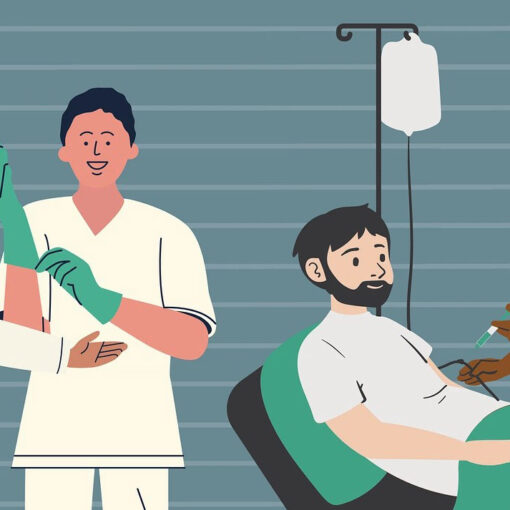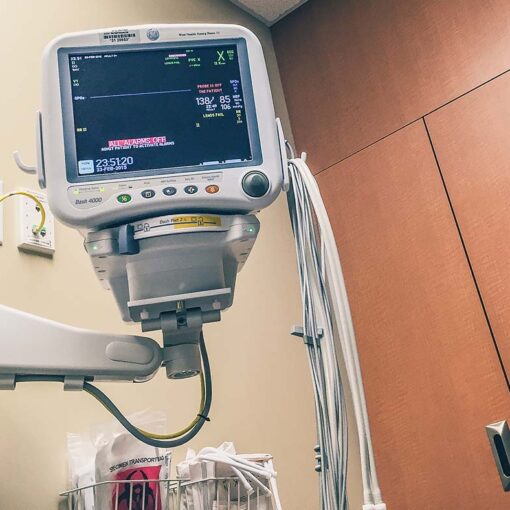Have you ever wondered about persistent adult acne, irregular menstrual cycles, excessive hair growth or even mental health issues? These symptoms could indicate PCOS – a common but often misunderstood and overlooked hormonal disorder that affects women of reproductive age and young women. Despite its prevalence, it is frequently underdiagnosed, leaving many women unaware of its physical and mental health impacts. Nurses, as frontline healthcare providers, play a crucial role in raising awareness and guiding patients toward early diagnosis and treatment to prevent complications.
Understanding PCOS
Affecting 8–13 % of women globally, PCOS is one of the most common endocrine disorders. PCOS is characterized by irregular menstrual cycles, acne, hirsutism, and polycystic ovaries, often accompanied by mental health issues like depression. This condition also leads to complications such as obesity, type 2 diabetes, and cardiovascular problems due to insulin resistance. However, awareness of PCOS remains low, with many women sufferings for years before receiving a diagnosis (Jena et al. 2020). Due to this lack of awareness, symptoms are often dismissed as normal variations in menstrual health. Early diagnosis and awareness are crucial to prevent long-term complications, including infertility, mental health challenges, and metabolic disorders.
![[Alt text: a picture with title how pcos affects the body, information includes mood disorders, irregular periods, insulin resistance and so forth.]](https://blogit.lab.fi/labfocus/wp-content/uploads/sites/8/2024/11/984_2024_The-role-of-nurses-in-raising-awareness-about-PCOS-1024x576.jpg)
What are nurses´ roles?
Nurses are at the forefront of health care, making them uniquely suited to lead efforts in the education, prevention and management of PCOS. Their role extends beyond clinical care to advocacy, support and education.
By providing education to the community, nurses help to raise awareness. This includes early education for symptoms recognition, especially for young girls who may not fully understand the implications of irregular menstrual cycles or other related symptoms. Armed with evidence-based knowledge, nurses provide accurate information, guide treatment, and promote preventive care through lifestyle modifications. (Mohamed et al. 2024).
Building trust and encouraging open discussions with patients are also essential for early diagnosis and reducing long-term psychological and physical complications. They are instrumental in guiding patients on lifestyle modifications, monitoring potential complications, and offering individualized advice on treatment options based on patients’ condition. Additionally, nurses support reproductive health by providing guidance on fertility planning and addressing challenges related to irregular menstrual cycles and hormonal imbalances. (Rocha et al. 2019).
Furthermore, PCOS significantly impacts mental health, often leading to anxiety, depression, and low self-esteem, highlighting the critical role of nurses in addressing these emotional challenges to improve patients’ quality of life. Nurses must be trained to identify mental health concerns, provide emotional support, and refer patients to appropriate mental health services, ensuring comprehensive care. By creating a safe, trusting environment, nurses empower patients to openly discuss their concerns, alleviating psychological burdens and positively influencing physical health outcomes. (Misso et al. 2018).
Many possibilities for education
Educational campaigns, led by nurses, focus on informing the public about the symptoms, risk factors, and long-term implications of PCOS, while school-based and community programs promote early identification and effective management. Web-based education and interactive tools enable individuals to improve health literacy and actively engage in health management fostering comprehensive care. (Mohamed et al. 2024).
Overall, through comprehensive efforts, nurses play a vital role in addressing the diverse challenges of PCOS, helping women achieve healthier and better quality of life. The thesis conducted by Nguyen and Dinh (2024) has demonstrated the complex roles of nurses in promoting awareness and managing PCOS effectively.
Authors
Loc Vy Nguyen Nguyen is a final-year paramedic student at LAB University of Applied Sciences.
Thi Hong Anh Dinh is a final-year nursing student at LAB University of Applied Sciences.
Jenni Hämäläinen is a Senior Paramedic Lecturer at LAB University of Applied Sciences.
References
Jena, S. K., Mishra, L., Ss, N., & Khan, S. 2020. Awareness and opinion about polycystic ovarian syndrome (PCOS) among young women: a developing country perspective. International Journal of Adolescent Medicine and Health, 33(3), 123–126. Cited 22 Nov 2024. Available at https://doi.org/10.1515/ijamh-2018-0166
Misso, M. L., Teede, H. J., Costello, M. F., Dokras, A., Laven, J., Moran, L., Piltonen, T., Norman, R., Andersen, M., Azziz, R., Balen, A., Baye, E., Boyle, J., Brennan, L., Broek-mans, F., Dabadghao, P., Devoto, L., Dewailly, D., Downes, L., . . . Yildiz, B. O. 2018. Recommendations from the international evidence-based guideline for the assessment and management of polycystic ovary syndrome. Fertility and Sterility, 110(3), 364–379. Cited 22 Nov 2024. Available at https://doi.org/10.1016/j.fertnstert.2018.05.004
Mohamed, R. A., Taref, N. N., Osman, N. E., Keshta, N. H. A., Alboghdady, M. A., Marzouk, M. M., Almowafy, A. A., & Fadel, E. A. 2024. Effect of web-based health education on nursing students’ knowledge, adaptive healthy measures and attitudes regarding polycystic ovary syndrome: a randomized controlled trial. BMC Nursing, 23(1). Cited 22 Nov 2024. Available at https://doi.org/10.1186/s12912-024-02015-7
Nguyen, N. & Dinh, A. 2024. Role of nurses in raising awareness of Polycystic Ovary Syndrome (PCOS) among female teenagers and women of reproductive age. Thesis. LAB University of Applied Sciences. Cited 22 Nov 2024. Available at https://URN:NBN:fi:amk-2024112630446
Rocha, A. L., Oliveira, F. R., Azevedo, R. C., Silva, V. A., Peres, T. M., Candido, A. L., Gomes, K. B., & Reis, F. M. 2019. Recent advances in the understanding and management of polycystic ovary syndrome. F1000Research, 8, 565. Cited 22 Nov 2024. Available at https://doi.org/10.12688/f1000research.15318.1




